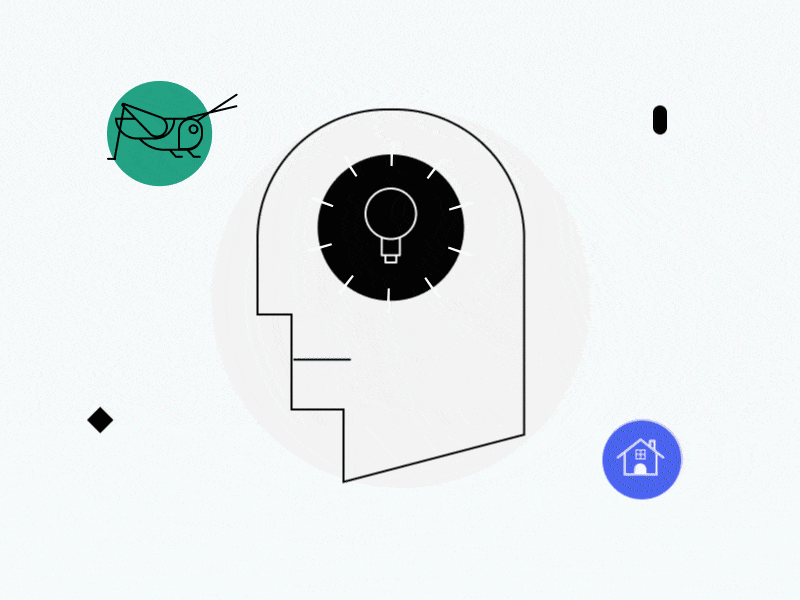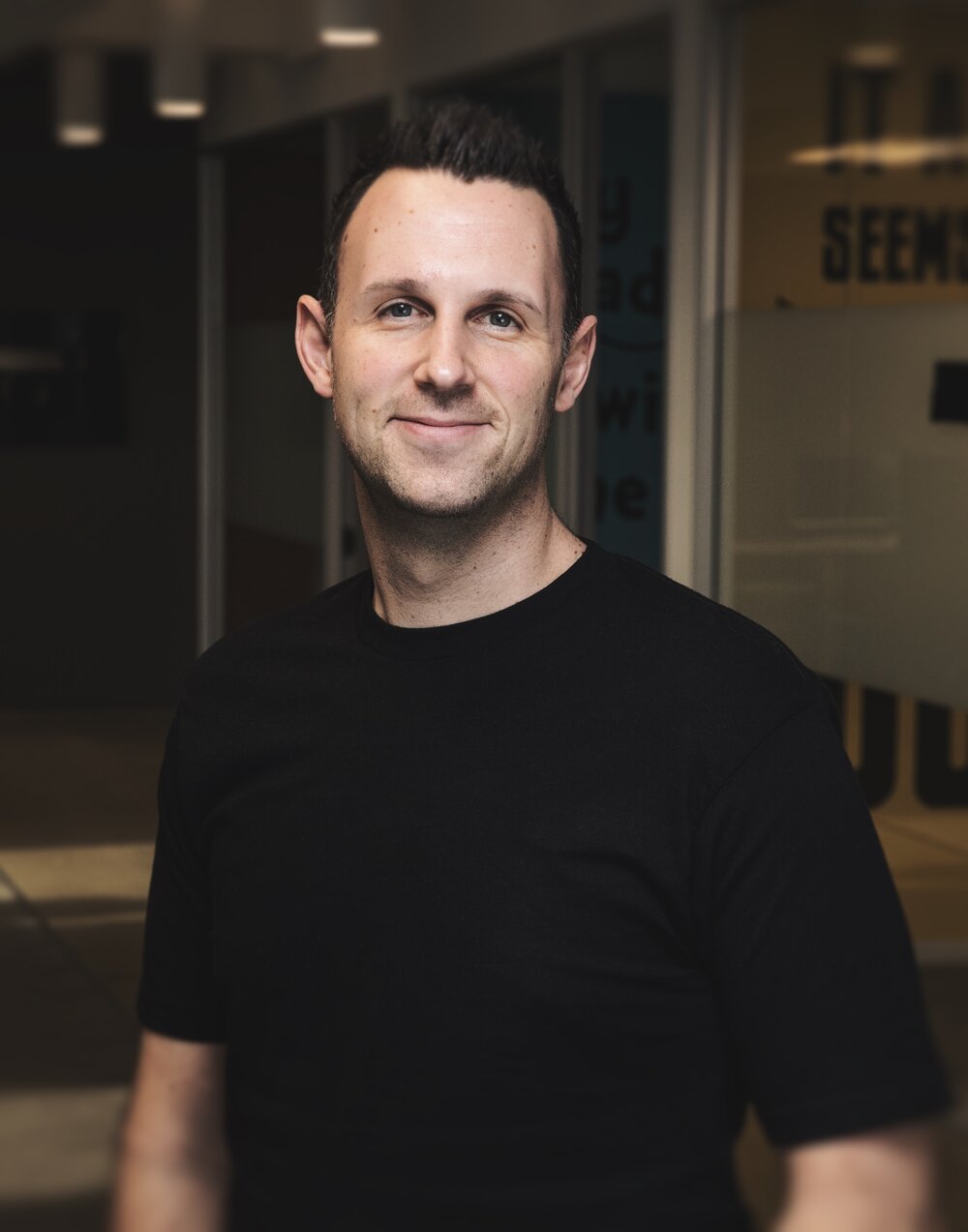 Vanilla
Vanilla
I sold my last company. Now I’m building another to help entrepreneurs plan for the future

By the time I sold my third company, Grasshopper, to Citrix in 2015, we had bootstrapped the company from virtually nothing to more than $30 million in annual recurring revenue. We spent 12 years refining our technology and more importantly, helping other entrepreneurs succeed and build their own companies.
For many entrepreneurs, selling their company is the end goal. An acquisition by a major multinational might prompt some founders to start thinking how they’d spend their time—and money—once the ink was dry.
For me, selling my company made me think about my own death and what I’d be leaving behind—and what I was going to do about it.
Selling my company was just the beginning
After I sold Grasshopper, I spoke with several other entrepreneurs who’d sold their companies in similar acquisition deals. The circumstances of those deals were all different, but there were two commonalities to these conversations: how those acquisitions had changed their lives on a personal level, and how they had changed things on a financial level.
Selling my company didn’t have a dramatic impact on my day-to-day life. I’d been fortunate enough to grow Grasshopper to the point at which I could live in a nice house. I could drive the kind of car I wanted to drive. I could take vacations pretty much wherever and whenever I wanted. For me, the biggest changes were financial. My day-to-day lifestyle may not have changed that much, but my net worth and the amount of liquid capital I had changed significantly and very quickly.
At that time, I didn’t know how I should go about investing that capital. Before finalizing the sale, I’d spent a lot of time reading and researching what it meant to have capital over a long period of time, and I was fortunate enough to know what I didn’t know. This helped me to start figuring things out.
I realized early on that there were two main ways I could handle my newfound financial freedom. I could either try my hand picking stocks like Jordan Belfort in The Wolf of Wall Street, or I could opt for the easier route and invest in a hands-off index fund and focus on building value. But this realization brought with it even more questions—and these were the questions that kept me up at night:
How could I reduce my tax burden, and how was I supposed to structure my estate?
Reducing your tax burden is like playing a fun-but-complex game in which the rules aren’t immediately obvious and one player—the federal government—has a considerable advantage. I fully believe that everybody should fulfill their tax obligations under the law, but reducing your tax burden isn’t about screwing over the IRS or being financially irresponsible. It’s about maximizing the impact of your legacy and making your wealth work for you.
At that time, I didn’t know all the rules of this game. So, before I started playing, I sought out advice from smart, experienced people who did. This is what led me to AdvicePeriod and my future cofounder, Steve Lockshin.
Finding the perfect partner in AdvicePeriod
Before I sold my company, I didn’t have an investment advisor, because at that point, I didn’t need one. What I did need was reliable advice that aligned with what I wanted to accomplish with the wealth I’d built.
Based on my initial research, I knew I wanted to focus on tax-loss harvesting—selling securities at a loss to offset tax liabilities on capital gains—and index funds. I understood those concepts as a whole, but I didn’t have a lot of in-depth knowledge about how to make them work for me.
I also knew I wasn’t interested in the kind of old-school investment advice the majority of firms offer. I wanted advice from forward-thinking, technology-focused advisors who genuinely understood tax and estate planning. I wanted low or fixed pricing, instead of fees based on assets under management.
It soon became clear that this was a lot harder than I thought it would be.
I reached out to my network for recommendations, and was lucky enough to meet Steve Lockshin of AdvicePeriod. Very early on, it was clear that Steve and I aligned on a number of key areas. One of the most important was fee structures. I wasn’t interested in advisors who worked on percentages. I wanted to work with someone whose fees were based on the value they add, and Steve was more than ready to demonstrate what that value could look like.
Unlike most advisors, who typically focus on asset allocation, Steve advised me very early on to invest in low-fee index funds on Betterment and focus on what really mattered—taxes, and how to structure and plan my estate. At that time, I had a poorly structured trust, an outdated will, and not much else. Steve took one look and shook his head.
‘This is not the right way to do things.’
— STEVE LOCKSHIN
Planning my estate
There’s an ancient Greek proverb that says society grows great when old men plant trees in whose shade they’ll never sit. I’m hardly an old man, but Steve and I often joke about the fact that I’ll never see the benefits of the investments I’m making today because the real value of those investments will only be realized after I die.
This might sound a little morbid to some people, but I’ve set things up in such a way that it’s my kids, grandkids, and even great-grandkids who’ll see the most benefit from the decisions I’m making today.
One of the first things Steve asked me to think about was how I’d feel if my estate were being handled while I was still alive. If your child was in their early 20s, and they suddenly inherited a million dollars, what kind of impact would that have? Some young people might be able to handle that kind of windfall responsibly, but it would probably mess up most people.
That’s exactly what happens by default if you fail to plan your estate.
Thinking about estate planning now is a direct investment in your family’s future. For me, there were three primary areas I wanted to focus on:
-
Ensuring my kids’ health and wellness. I’d spend any amount of money, for any reason, if it meant my kids will be safe, happy, and healthy. This was, and always will be, my top priority.
-
Creating a stable home. Children can’t realize their full potential in unstable environments, and it’s critical to ensure they have a stable base upon which to build their life and develop their own sense of self. Property inheritance is a crucial part of good estate planning, but also one of the most potentially complicated––particularly when it comes to tax liabilities.
-
Teaching the value of individual responsibility. My kids know that they’ll never receive a huge windfall inheritance when I die, but they also know that they’ll always have what they need to live healthy, happy lives. I didn’t have a sizable inheritance to fall back on when I was starting out as an entrepreneur, and had to learn the value of money and the importance of hard work myself—something I believe my kids should learn, too.
It might sound like an oversimplification, but everything else falls under the umbrella of leaving a lasting legacy. For me, this includes supporting entrepreneurship, donating to worthwhile charitable causes, and empowering people to make decisions about their financial freedom and how to build wealth.
Steve’s advice and guidance helped me plan my estate and secure my family’s future. It also helped me identify a genuine need for better, smarter estate planning tools that could help others do the same. This is how Vanilla came to be.

Why choose Vanilla?
Tax liabilities and estate planning are typically perceived as difficult, time-consuming concepts that require sophisticated legal and financial expertise. While there’s certainly no shortage of self-styled experts who can help you navigate this complexity, many of those same experts have a vested interest in keeping these topics difficult and time-consuming.
Put another way: If a person’s livelihood depends upon making people believe something like estate planning is difficult, the last thing they want you to realize is that estate planning can actually be easy, inexpensive, and efficient.
Vanilla is an estate-planning automation tool that allows advisors to offer trustworthy, actionable advice to their clients in a simple, efficient way.
Simplifying complexity
Let’s say you’re in need of legal advice. You might start looking around for a reliable attorney by reaching out to your network and asking for recommendations. Someone in your network refers you to an attorney they used in the past, and that attorney recommends a complex legal strategy to help you solve your problem. However, that complex legal strategy turns out to be convoluted and poorly structured. But you don’t know that, because you don’t know what you don’t know, which is why you were looking for a reliable attorney in the first place.
This isn’t your fault, and it’s not your acquaintance’s fault, but the entire situation could have been avoided if you’d known what questions to ask to begin with.
Vanilla helps you ask the right questions at the right time. By identifying your clients’ needs early on, you can save them time, money, and effort with sound, efficient estate-planning advice from the very beginning.
Offering accessibility
One of the single biggest misconceptions about estate planning is that it should be done toward the end of a person’s life. Another is that it’s only important for wealthy individuals with enormous personal fortunes.
The reality is that estate planning is just as important for people of even modest net worth, and it’s never too soon to start planning for the future.
Estate planning can be difficult and time-consuming, but it doesn’t have to be. Vanilla makes estate planning accessible by combining state-of-the-art automation with the vast legal expertise of our network of estate-planning attorneys. It’s accessible, it’s affordable, and perhaps most importantly, it can be taken care of quickly.
Many people worry that estate planning takes a long time and involves asking hard questions. While it’s true that estate planning does require acknowledging our own mortality, it doesn’t have to be a difficult, painful conversation.
Helping advisors offer better, smarter advice
My own personal experiences showed me that there’s a genuine need in the market for better, smarter estate planning tools. In addition, many advisors recognize the urgent need for this kind of financial planning, but don’t know how to initiate conversations about estate planning with their clients.
Vanilla allows your client to engage with skilled, experienced attorneys to create bespoke estate plans that eliminate your exposure to unauthorized practice of law (UPL) claims. With documents developed over decades by top planners, Vanilla’s network of local attorneys review your clients’ documents during a phone consultation. All this allows you to offer you clients significantly greater value and provide trustworthy advice and guidance during some of the most important financial decisions of their lives. It also helps your clients secure their financial legacy for long after they’re gone.
Steve and I sincerely believe that estate planning and tax management should be easier, smarter, and more affordable. This is the entire ethos behind Vanilla, and it informs everything we do and build. We believe people should have access to better financial advice about securing their family’s future, and that they should be able to make decisions about their financial legacy knowing that your advice is right for them and their family.
To learn more about Vanilla and how it can help you and your clients, get in touch.
Deliver a better estate planning experience, no expertise required
This article is for educational purposes only and should not be considered legal advice. If you feel that the information in this article is pertinent to your situation, you may wish to consult a qualified attorney for advice tailored to your circumstances.
Published: Sep 04, 2020
Holistic wealth management starts here
Join thousands of advisors who use Vanilla to transform their service offering and accelerate revenue growth.
